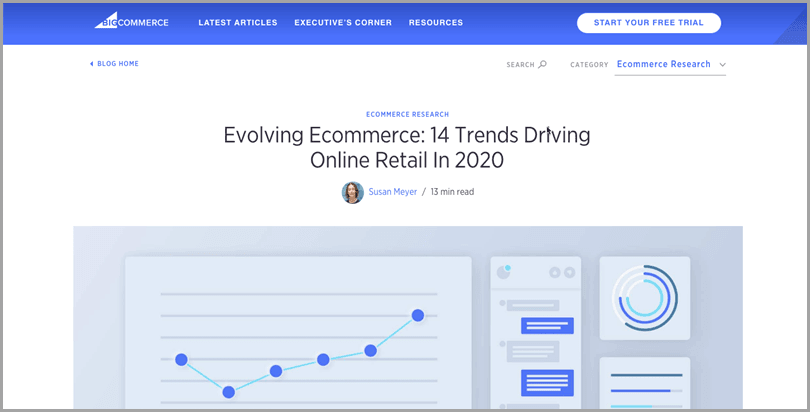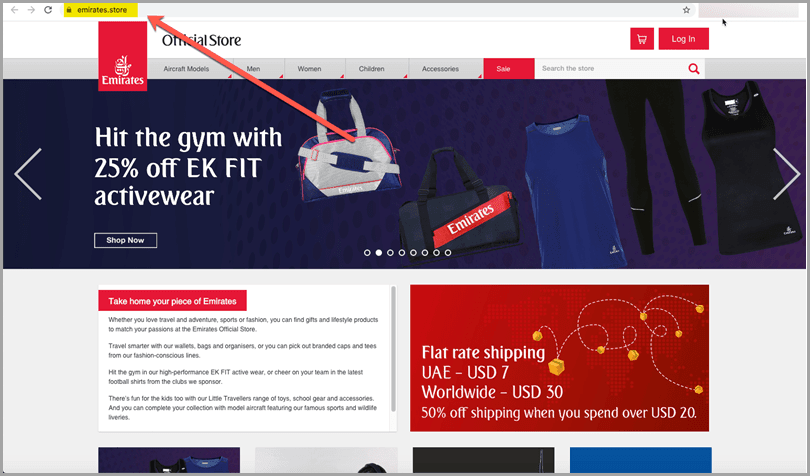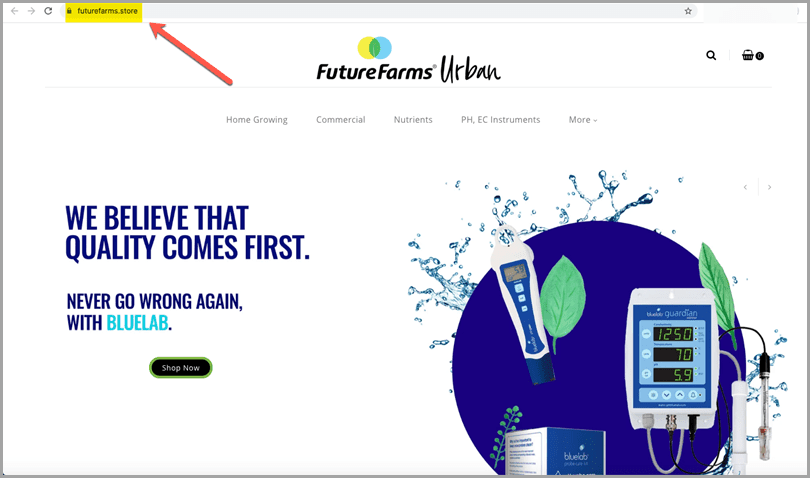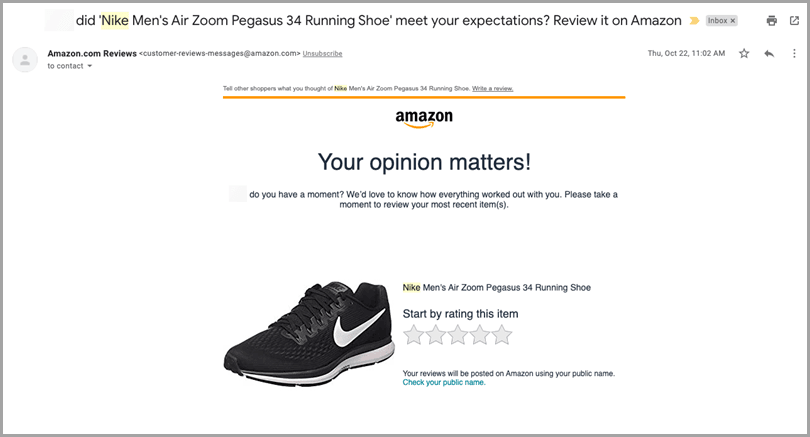
Do you have your slice of the thriving eCommerce pie?
The world of online shopping continues to grow at a rapid pace, with worldwide growth rates predicted to be 16.5% this year… and that figure incorporates a minor deceleration due to the pandemic!
With such rapid and sustained growth, year-on-year, competition for online attention is heating up.
From niche dropshipping stores to powerhouse marketplaces such as Etsy, Facebook, and Amazon, every Tom, Dick, and Harriet sells something online these days.
Of course, much of how the online ecosystem operates is out of your hands. You can’t control what your competitors are doing and how they interact with your potential customers.
However, you can control your own backyard…
I’m referring to your digital presence – from social media to your website and beyond.
Regardless of how robust your product line is, it’s all wasted if your web presence doesn’t live up to expectations.
When potential customers land on your website or discover you on social media, they expect a certain experience. You need to deliver on that experience.
Here are four tips to boost your brand and drive more traffic to your online store.
#1. Get the right domain name
Have you ever come up with the perfect business name, only to find out the domain name is taken?
It’s heartbreaking.
When you’re first starting a business, there are lots of bumps and bruises along the way, and while they may seem small in isolation, they build-up to create stress and pressure that you simply don’t need.
Finding the right domain name is one of those bumps.
You may look at it as a small cog in your online store’s development, but for a digital business, the domain name is absolutely critical. It’s how people will remember your brand.
The cool thing is, you don’t need to stress about finding an available .COM anymore or paying an exorbitant price for one that fits your brand name.
New domain name extensions, such as .STORE, are the perfect solution for eCommerce startups, online stores, home-businesses, retail brands, drop-ship businesses, and more.
Not only are there more .STORE domains available – meaning you are likely to get the one you want – but these domain extensions come with an array of other benefits, too.
They’re short, highly relevant to your business, part of your brand, and most importantly, effortless to remember.
Some of the biggest brands in the world are adopting the .STORE domain extension – such as Nike, Amazon, Jimmy Choo, and Emirates:
But it’s not just for big brands – startups and small businesses are reaping the benefits of the .STORE eCommerce extension, too:
Don’t underestimate how vital your domain name is in the world of eCommerce. Make yours a memorable one!
#2. Find your niche
It may sound cliche, but finding the right niche for your eCommerce business, especially if you’re just starting out, is critical.
For brands that have been around for a long time or have an endless budget for product development and marketing, offering a diverse product line is achievable. But for new businesses, you need to stay laser-focused.
Why?
For one, you don’t have the resources to effectively design, create, and market a range of new products.
As well, your marketing will be far more effective if it is highly targeted.
For example, consider the small business www.nundle.store – an Australian-based online store, Nundle Woolen Mill is reconnecting with Australia’s wool heritage.
The business spins yarns that its customers then turn into stunning clothes and soft furnishings. Nundle Woolen Mill also sells a carefully curated collection of apparel, homewares, gifts, books, and knitting accessories, with a special emphasis on wool, naturally.
As you can see, targeting a specific niche gives purpose to your marketing and sales copy across all digital channels.
#3. Create a marketing strategy
It’s all well and good to have the right domain name and a profitable niche to target, but how will people find out about your eCommerce store?
Creating a marketing strategy is a crafty balancing act for new businesses. While you want to be everywhere possible to increase brand awareness, you also need to manage your spending and limited human resources to get the biggest bang for your buck.
I recommend taking a two-pronged approach to your eCommerce marketing strategy. Invest a portion of your budget into your brand’s long-term success and a portion into short-term sales growth to build momentum.
- The Long-Term – When it comes to your brand and business’s long-term success, consider marketing tactics such as SEO, social media profile growth, content marketing, and other organic methods for establishing trust and generating traffic to your store.
- The Short-Term – From a short-term perspective, your focus should be on PPC advertising via social media platforms or search engines whereby you can track conversions and optimize performance over time.
You can’t have one of these marketing strategies without the other. If you focus solely on PPC advertising, you’ll attract price shoppers and struggle to stay profitable. On the flip side, if all you do is focus on SEO and content marketing, you won’t get the sales and momentum you need to get your brand off the ground.
Another essential part of your strategy should look at referral-based marketing and customer testimonials.
According to BigCommerce, consumers want more customer testimonials from eCommerce sites because they rely on them to make purchase decisions. Utilize your PPC marketing strategy to acquire customers, then build out an automated sequence of follow-up messages after they purchase to get testimonials. These testimonials will help decrease your cost-per-acquisition and create a cycle of profitability.
It’s no surprise that Amazon, the biggest eCommerce marketplace in the world, has these systems built into their ordering process:
You can also use your follow-up sequence with new customers to initiate a referral program. Reward your customers for referring their friends, buying additional products, or completing actions such as sharing your business on social media.
Referrals and testimonials are the two cogs that combine your long-term and short-term marketing strategies to improve profitability and accelerate growth.
#4. Keep up with the latest trends
Digital marketing and eCommerce is changing at a rapid pace. With increased competition, there is more investment in online shopping and significantly more innovation than ever before.
Dynamic product recommendations, new domain extensions, personalized messaging, highly targeted remarketing campaigns, and automated chatbots are just a handful of the trends this industry has seen in recent years.
Your customers are now used to interacting with businesses based on these technological advances. They want a personalized experience with your brand and meaningful recommendations on autopilot.
How do you keep up with the next wave of trends and ensure your business stays relevant?
Here’s what I suggest:
- Monitor what Amazon is doing. They have the biggest budget, the best tech team, and the most optimized buying experience in the world. Adopting new tactics they roll out is not a bad strategy.
- Observe your biggest competitors. Take note of how your competitors optimize their sites, share content on social media, and interact with their customers. While you will want to be unique and test all tactics before implementing them, you also don’t want to miss an opportunity to improve.
- Follow eCommerce platforms. eCommerce platforms, such as BigCommerce or Shopify, regularly publish content about the industry and what trends they are seeing. For example, BigCommerce has an eCommerce trends page on its website that is updated periodically with new information.

Don’t fall behind as the eCommerce world transforms in the coming years – be there at the forefront, capitalizing on the predicted growth.
Wrapping up
If you’re going to start an eCommerce business this year, be sure to prepare.
Yes, the eCommerce space is thriving at the moment, and the opportunities are limitless for smart entrepreneurs.
But if you don’t get the basics right, then your idea may never get off the ground.
Secure a memorable domain name, pick a niche, develop a robust marketing strategy, and keep up to date with the latest trends. It may sound like I’m over-simplifying it, but that’s part of the trick. Stick to the fundamentals, and your chance of success will dramatically increase.




















